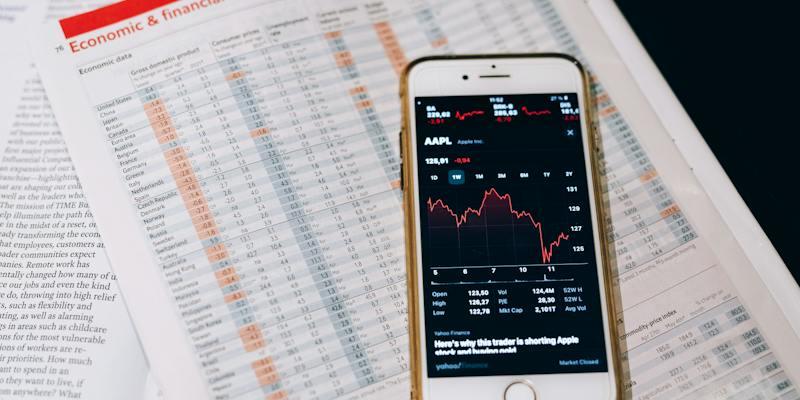Market capitalization is a company's total market value. The formula multiplies the current share price by the number of publicly traded shares.
This idea keeps a company's market value relatively constant regardless of stock price changes, which may seem necessary. For investors, stock price changes are more than numbers. A $0.10 stock price drop may not seem like much.
An investor with 1 million shares loses $100,000. This is why fluctuations in stock prices are closely watched and can cause a stir among shareholders.
Types of Stock Markets
There are two types of stock markets:
Primary Market Trading
Companies use banks to manage their first public stock sale. The first stock sale is called an IPO. Investment banks and the company set IPO share prices here. Large institutional investors like mutual and pension funds buy the first batch of shares directly from the company. These institutions trade lots of shares.
Additionally, companies can issue bonds in this market. Bonds are loans. After a set time, the investor receives the loan amount plus interest. After their stocks are publicly traded, a company may return to the market to issue new stocks or bonds, called a “primary issue.”
Secondary Market Trading
A stock or bond is first issued and sold directly from the company to investors in the primary market. Investors need a platform to trade these securities after this initial sale. This is where secondary markets matter. These markets include stock exchanges. Famous examples include the New York Stock Exchange, Nasdaq, Shanghai Stock Exchange, and Japan Exchange Group.
Most people are familiar with Wall Street or secondary markets. They allow retail and institutional investors to trade. These markets' buying and selling affect company stock prices. These changes can boost or lower a company's stock. Those interested in company stock price fluctuations, including the honest company stock price, must understand these markets.
What Can Affect Stock Prices?

Stock prices are affected by four main factors, which are discussed below:
1. Company Performance
Understanding the factors that impact company stock prices requires a close look at individual company performance. Several factors can influence whether a company’s shares rise or fall. Key influences include:
- Reports about company earnings and profits, including current results and future revenue projections.
- Announcements regarding dividends.
- The introduction of new products or the recall of existing ones.
- Winning a significant new contract.
- Reductions in staff numbers.
- Potential takeovers or mergers.
- Changes in top management.
- Accounting irregularities or scandals.
These factors can increase or decrease a company's perceived value, affecting its stock price. Higher-than-expected profits may boost the stock price, while a product recall may lower it.
2. Industry Influence
The performance of a sector can significantly impact the stock prices of companies within that industry. Typically, companies in the same sector react similarly to market conditions. For example, if one company faces a scandal regarding a product, it might negatively impact other companies producing similar products, as consumer trust in that product type could decline.
However, bad news for one company can benefit its rivals in some scenarios. If a company is forced to stop production, its competitors might experience increased demand for their similar products. This situation can lead to a rise in these competing firms' stock prices.
3. Investor Sentiment
Investor confidence affects market trends. Investor optimism boosts company stock prices. A bull market usually occurs during economic growth or recovery. The market's optimism grows stock prices, including honest company stock price.
Conversely, a bear market represents a period of declining investor confidence. In this scenario, company stock prices usually drop. This downturn is often seen during economic recessions, high unemployment, and rising prices. The decline in the honest company stock price and others in such a market mirrors the overall pessimism among investors.
4. Economic Conditions
Several economic variables have the potential to impact stock market values, both individually and collectively, including:
Interest Rates on Stock Values
The Bank of Canada's interest rate policy affects the stock market and individual stocks. Businesses pay more to borrow money for expansion when interest rates rise.
This unexpected cost may lower earnings and dividends. This may reduce the company's stock. Interest-bearing investments outperform stocks during interest rate hikes, affecting stock valuations.
Economic Expectations
The general sentiment about economic growth also sways stock market trends. If investors anticipate economic expansion, they tend to invest more in stocks, expecting future profitability and a rise in stock values.
Conversely, in times of economic uncertainty, investors might slow their stock purchases or start selling, leading to potential decreases in stock prices.
Inflation in Stock Market Dynamics
Inflation, characterized by increased consumer prices, generally results in slower sales and reduced company profits. This, in turn, often leads to higher interest rates, such as those implemented by the Bank of Canada to control inflation.
These factors collectively tend to suppress stock prices. However, commodities might behave differently under inflationary conditions, potentially experiencing price increases..
Economic and Political Uncertainties
Global political and economic changes can affect stock prices and the economy. Example: energy prices. They may reduce sales and profits, lowering stock values. Terrorist attacks and other events can also lower stock prices and the economy.
Shifts in Economic Policies
A new administration's policy changes can affect businesses for better or worse. These shifts in interest rates and inflation affect stock values.
Canadian Dollar Value and Impact
The Canadian dollar can affect stock prices, especially for exporters. Foreign buyers will pay more for Canadian goods when the dollar strengthens, which could lower sales and stock prices. However, a falling Canadian dollar will make Canadian goods more affordable to foreign buyers, which could boost demand and stock prices.
Market Capitalization Misconceptions

Large-cap and small-cap companies are easily compared by market capitalization. However, it doesn't show a company's equity value. Market cap doesn't always reflect a company's share value, which is a shortcoming. This makes it a lousy company valuation tool. Because company stock valuations can be wildly inflated or undervalued. Share prices reflect investor demand, not company value.
However, market capitalization shows the total cost to buy a company's shares, not its merger or acquisition price. Despite being used interchangeably with market value, market capitalization only includes equity. A company's debts and assets should also be considered in its market value.




